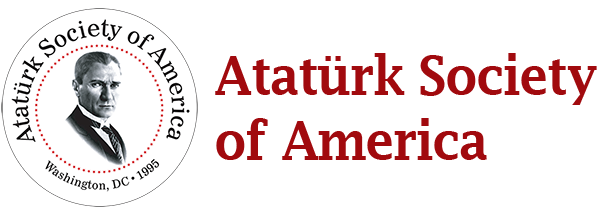A noted Jefferson scholar Dr. Garrett Ward Sheldon, The John Morton Beaty Professor of Political and Social Sciences at The University of Virginia’s College at Wise is the author of The Political Philosophy of Thomas Jefferson; The History of Political Theory; and Religion and Politics. He has lectured at Oxford University, Moscow University, and at the University of Istanbul.
Professor Sheldon’s book published in 2000 on “Jefferson & Atatürk” is a comparative study of the political theories of Thomas Jefferson, one of the founders of the United States of America, and Kemal Atatürk, the founder of modern Turkey. Similarities are found in their imperial settings, wars of national independence, establishment of republics, freedom of religion, public education, and economics. The author hopes that his book will show similarities in political theory in the United States and Turkey , between the West and the East that will bring the world’s peoples closer together. The similarities of these two great political thinkers are summarized by Dr. Sheldon as follows:
“At first glance, Thomas Jefferson and Kemal Atatürk seem to be unusual compatriots. Jefferson, the eighteenth-century North American philosopher and a Founder of the United States; and Atatürk, the twentieth century soldier of the Ottoman Empire and Founder of the modern Republic of Turkey, seem separated by history, culture, and temperament. Yet a closer examination of these two historic political figures reveals striking similarities in background, interests, and ideals. From their growing up in vast, but decaying, empires to their leading national independence movements, to their shared ideals of representative democracy, economic equality and progress, religious freedom and liberty, and love of the country side, Thomas Jefferson (an icon of American civilization) and Kemal Atatürk (the hero of Modern Turkey) show remarkable kinship across cultural and historical landscapes. This book examines these common characteristics and ideals in Jefferson and Atatürk, shoving that distance and culture are not barriers to shared sacred ideals and practices. Although many specific differences exist between these two leaders, the extent of similarity, given their contrasting environment and times, is an encouragement to all who believe in the commonality of humanity, wherever and whenever found on the globe…
Both, Jefferson and Atatürk insisted that the battle for national independence was not for a restoration of the past but for an entirely new political system in America and Turkey: a democratic republic. Each authored a “Declaration of Independence” extolling principle of republican government by the consent of the people. Both became outlaws to the old Empires…
A key component of a modern republic, for Jefferson and Atatürk, was freedom of religion. Each had grown up in a society with a state religion: The official Church of England for Jefferson and the official Islamic state for Atatürk. Both saw the legal involvement of religion in politics as corrupting both religion and politics…Likewise, both Jefferson and Atatürk saw education as essential to self-government. Each inherited a society in which education was only for the privileged few; and each helped establish a public education system that elevated the average citizen to literacy and intelligence…”
Garrett Ward Sheldon, Peter Lang Publishing, Inc

